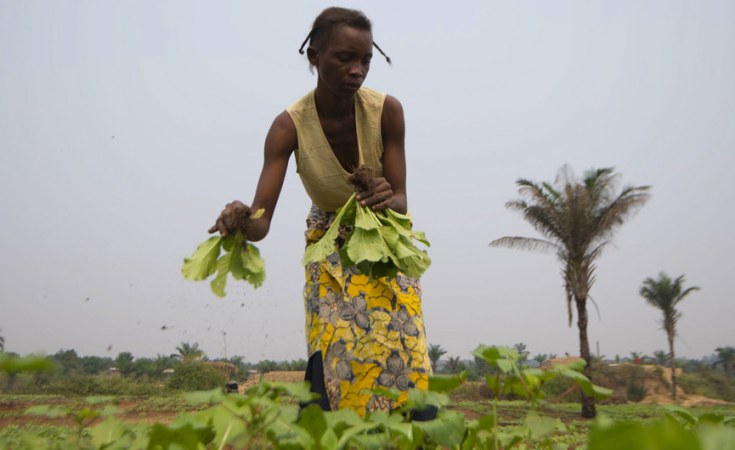As crowds in the Democratic Republic of the Congo (DRC) thronged on Thursday to hear Pope Francis's message of hope and solidarity on day three of his official visit to Central Africa, UN humanitarians warned that aid agencies face growing demands and shrinking funds in DRC - Africa's biggest hunger crisis.
Millions of Congolese face severe food insecurity, particularly in the northeast, where fighting has uprooted millions of people. As part of his three-day DRC visit, the Pope is expected to meet families displaced by conflict in the east.
This staggering number includes more than half a million uprooted from their homes in recent months, the UN World Food Programme, WFP has warned.
To help them, the UN agency has appealed to the international community for more than $627 million, to fund vital humanitarian assistance this year.
Corruption called out
In a personal appeal of his own, Pope Francis reportedly urged young Congolese to work for a better future and shun corruption, his Italian remarks translated into French for those gathered at the 80,000-capacity Martyrs' stadium in Kinshasa.
"You are part of a greater history, one that calls you to take an active role as a builder of communion, a champion of fraternity, an indomitable dreamer of a more united world," the pontiff said, as he also urged those listening to never succumb "to the persuasive but poisonous temptations of corruption".
Severe hunger affects one in four
In 2022, WFP reached 5.4 million of the most vulnerable people in DR Congo with food and nutrition aid, focusing on conflict-hit women and children.
But needs are vast in the central African nation, where more than 26 million people face severe hunger - more than a quarter of its total population.
"I have seen first-hand that this country has so much potential to produce food for its people and give jobs to youth," said WFP's DRC Country Director and Representative Peter Musoko.
He expressed hope that the Pope's visit will help to highlight the plight of millions of hungry people in the Central African nation, for whom WFP is sometimes "the only backstop against catastrophic food insecurity".
"With an ongoing emergency and limited resources, we are appealing to the international community for $627.3 million in 2023," Mr. Musoko said.
Goma shelter
Some of those displaced by violence in DR Congo's northeast, have found and assistance from WFP and partners, along with shelter at the makeshift Kanyaruchinya camp, outside the provincial capital, Goma.
It's there that farmer Dorati Ndagisa now lives, destitute, with her five children, after armed groups chased from her homestead, in eastern Nord Kivu province.
Her plight is mirrored by many others, a result of chronic unrest linked to conflict from 1998 to 2003 over precious raw materials that involved as many as eight regional neighbours, and which spawned more than 100 armed groups who now terrorize communities in eastern DR Congo.
"Before, I was a farmer and I had a stable life," said Ms. Ndagisa, who once grew beans and potatoes in the village of Rugari, 35 kilometres (21.7 miles) away. "Since the war I have nothing, and I don't know how to feed my children."


